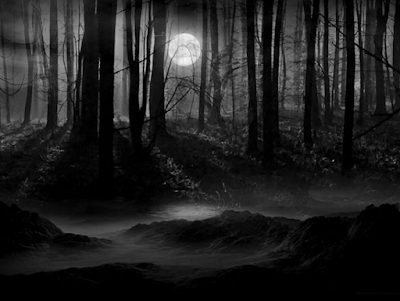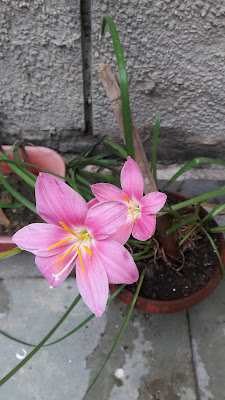It's Complicated
Sipping lemon ice-tea and
watching the twenty somethings making eyes at each other was fun on any weekend
in this boring city. Especially so when
you are in a happy zone of not pleasing anyone but yourself. Pleased as punch I
was with myself, for being this all knowing woman of the world but the heart
still did sigh at the sight of young love. Also I knew how all roads will lead
to disappointment, but somehow they must falter and find out for themselves. And
when you are with your best mates quite obviously, the relaxed conversation on
our table veered to relationships as it mostly happens between close friends.
Right there on the table we had
one anguished married man, a happily living - in woman and me, a once bitten,
twice shy widow, with no intention of getting into a relationship ever again. Although
three of us had very different relationship statuses but we all agreed marriage
is the worst possible relationship for us.
Marriages – just - don’t- work- no -more. Period! Given the chance, the only committed man at the table will "get out" before you
could blink. But he chose to endure on for his two lovely kids. To each his
own. We celebrated our differences on the matter with some French fries.
This is a common place scenario
for all 40 plus urban Indians today. Just not specific to India but also
in the sub-continent around us. Things have really changed we would agree. It’s
an urban thing, yes. But in rural India too abandonment and polygamous relationships are thriving.
But what has really happened to the historical successful
marriages of our last generations I wondered? Most of us have a good memory of
our parents’ lovey-dovey and often not-so-rosy and rocky relationships which has endured the test of times. They had their low points I am sure like any long term relationship is
bound to have, but somehow, they overcame it all. But did they? Or, it was just what our memories doctored or rewired? Did they also live in unhappy relationships?
Come to think of it, I believe
they were entrapped in situations where mostly two people lived together
because they had to, "choice" had no room there. Later, they somehow convinced
each other to stay on for the children. The social stigma attached to divorce
and laws of inheritance further cemented them to stay together. As women
became professionals and economically independent the game changed. The
enabling laws helped them to assert and attain their share of the broken
marriages too.
As more and more people find
their voice in a relationship it seems keeping a relationship together becomes
a “humongous task” and not something we would like to “nurture” anymore. Well,
I have learnt the hard way and so have my friends, but would like to hear from
you what do you think makes a relationship, errr, so complicated now than it
was ever before? Or marriages will soon become a thing of the past? After all it is a social contract between a woman and a man to procreate. With time as more and more couples remain childless, will there be a reason to stay on as a man and wife? Do share your opinion as I keep pondering!



Comments
But in modern times it has become more or less redundant (apart from societies where laws are not strong for protecting human rights). I like your phrase "atomised societies"relationships can only thrive by choice and that I believe is diluted by the marriage contract of today and egos only wreck havoc.
Also: practically, to date, in many countries formal marriages still provide more legal and financial securities than any legally unsactioned relationship. Not to mention that it is still strongly associated with religious or personal beliefs (see for instance in the official Catholic doctrine).
As you rightly point out in the freer, competitive world it only breeds aggression. And herein lies the pitfall. It automatically synthesizes as well as amalgamates the roles so inextricably that no such clear delineating point remains. So, relationships become furthermore complex. Within the Indian society too these lines have been fading and merging for a while and as we get close to another decade in the Millennium the balance tips against the institution I feel. On a lighter note you must tell me how you became ziyusaan, I mean so Japanese. At least it reads so to my untrained eyes :)
The present culture of "I want it all and I want it now" often comes with the freedom also FROM long term commitments which, however you want to name it, are still necessary to make anything work in the long run, relationships included. So many couples reject marriage and opt for other alternatives with the spirit of "Ok, we stay together as long as this works, then each one is free", which may mean that at the first hindrance, they split. In other words, they opt for something else as an easier way out of commitments.
Funny enough, I was first brought to think about this by a young, well-educated and well-traveled Indian man as he was trying to explain me the "logic" and somewhat effectiveness of arranged marriages. Not to their defense (he was against them and eventually went for a love marriage) but to "decode" this practice for me, he was explaining how by engaging into something that you know from the start is not based on feelings but on a "deal", you are more aware and somewhat more ready to take up efforts and sacrifices to make it work in the long run.
In the context of relationships "choice" today plays stronger role. But once it is given we human beings who have access to 500 odd channels on TV and 1000 other digital attractions, probably lose interest in it and stop working to make it successful partnership.
I find it more and more fascinating as I have witnessed the change here in India the last decade. The business model of the "Wedding" has taken over. American style big weddings have become the norm of the day. And thanks to poor aspirational TV content has also penetrated the rural India. 13 years back, that was not too long ago right, I had a small and intimate wedding with 60 wedding guests. Same applied to 70% of my friends those days. But today the BIG whole 9 yards is planned ahead for a year and then it goes bust by the time you can wish the couple a "Happy Anniversary". I reckon what is a loss for intimacy, is a gain for the "event industry" now.